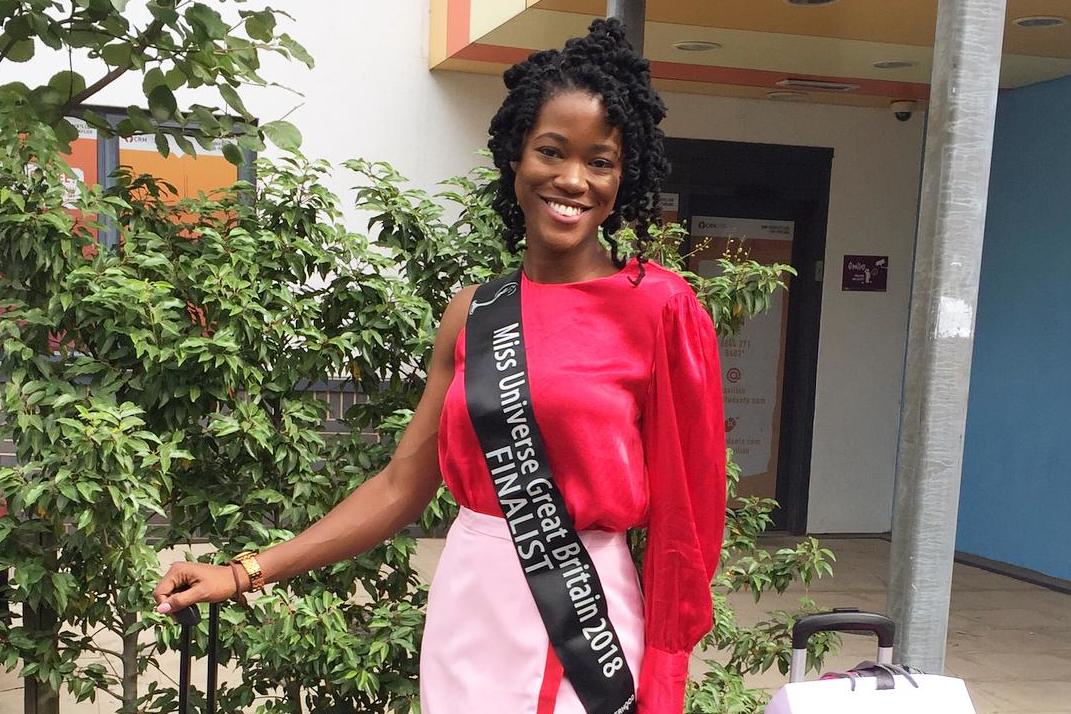Black woman wins Miss Universe Great Britain for first time
'Beauty standards are changing and it is an exciting time for all women of all backgrounds'

Your support helps us to tell the story
From reproductive rights to climate change to Big Tech, The Independent is on the ground when the story is developing. Whether it's investigating the financials of Elon Musk's pro-Trump PAC or producing our latest documentary, 'The A Word', which shines a light on the American women fighting for reproductive rights, we know how important it is to parse out the facts from the messaging.
At such a critical moment in US history, we need reporters on the ground. Your donation allows us to keep sending journalists to speak to both sides of the story.
The Independent is trusted by Americans across the entire political spectrum. And unlike many other quality news outlets, we choose not to lock Americans out of our reporting and analysis with paywalls. We believe quality journalism should be available to everyone, paid for by those who can afford it.
Your support makes all the difference.Miss Universe Great Britain has crowned its first black winner since the pageant began in 1952.
Dee-Ann Rogers made history when she received the accolade on Saturday; she will go on to represent the UK at the International Miss Universe competition, once-owned by Donald Trump, which will take place in December in the Philippines.
The 25-year-old hails from Anguilla, a British territory in the Caribbean, and competed against 40 women from England, Scotland, Wales, Northern Ireland and British overseas territories to win the prestigious title.
“The adrenaline from winning hasn’t died down yet,”Rogers tells The Independent.
On being the first black woman to win the pageant, she added that it “hasn’t properly hit” her yet and she suspects it won’t until she returns home to Anguilla.
“I am extremely proud of myself for this achievement,” she continues, “especially in this post-Brexit and Windrush period.”
In addition to studying to be a barrister, she finished her final bar exam at the University of Birmingham in June, Rogers is also a competitive heptathlete and has competed at the Commonwealth Games on two occasions.
However, she was forced to cease her athletic training after sustaining a knee injury.
While beauty pageants are frequently criticised for their lack of diversity, Rogers believes her win reflects a long-awaited change in the industry.
“I absolutely believe that diversity is increasing in pageantry and there are many examples around the world,” she says.
“Beauty standards are changing and it is an exciting time for all women of all backgrounds.”
Miss Universe Great Britain takes place every spring, involving women between the ages of 18 and 28.
Contestants go through an online application process before a panel of six judges - made up of former winners and experts from the fashion and beauty industries - conduct castings and interviews across the UK in order to select 32 finalists.
The competition then takes place on one day and consists of three rounds: a one-to-one interview with the judging panel, a catwalk round in which contestants are required to wear evening gowns and a second swimwear round.
They receive individual scores from the judging panel and the five highest-scoring women are then asked a final question on stage which they won’t have been able to prepare for.
Rogers was asked which moment from her life she would like to relive and chose to talk about competing at the Commonwealth Games.
Her win has been well-received on social media, with thousands of fans offering their congratulations and praising the pageant for its choice of winner.
“I loveeee when people break ‘beauty standards’, especially my fellow dark skin women,” wrote one person on Twitter.
“Our uniqueness should be celebrated, not merely tolerated.”
“Congratulations! This warms my heart! You are a true #historymaker,” added another.
Join our commenting forum
Join thought-provoking conversations, follow other Independent readers and see their replies
Comments